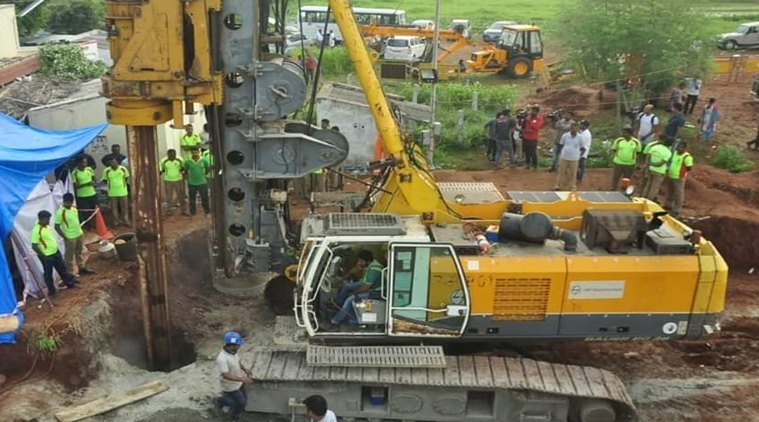The unfortunate accident of two-year-old Sujith Wilson, who fell into a borewell at Nadukattupatti in Tiruchirappalli district of Tamil Nadu, has taken its toll. Wilson is no more. The rescue team managed to only hook out the dismembered remains of the child from the well. It was a deeply saddening failure of our collective social responsibility. This is yet another horrible reminder of the laxity of the common citizen in not only capping borewells that have fallen into disuse but generally exhibiting utter disregard for the safety and well being of neighbors and fellow citizens.
Unlike domestic borewells, which are quite common in many parts of India especially where there is a scarcity of surface water, those dug for industrial use are deep and wide. Children such as Sujith have in the past, too, fallen down such shafts, making their rescue a massive challenge for rescue teams. Some such successful rescue attempts that have hogged the limelight included that of five-year-old Prince Kumar Kashyap in 2006. The incident occurred in Kurukshetra and the boy fell into a 55-foot deep borewell in the village. The boy was brought out alive at the end of a rescue operation that lasted 48 hours. While the media has since been having a great time covering such rescue missions, little has changed on ground, going by the recurrence of incidents of this nature.
The Supreme Court has laid down guidelines for the maintenance of borewells. One of those guidelines is that the respective district collectorates or block development offices should maintain data of borewells that are abandoned. The guidelines also state that fencing must be erected around borewells when they are either constructed or repaired. That is obviously not the case given the frequency of incidents involving toddlers or young children falling into these. The reason is that this is a completely impractical guideline and extremely difficult to implement. While some incidents are receiving public attention because of the media, there are numerous others that go unnoticed. The biggest challenge in such cases is the possibility of a delay in initiation of a rescue effort; delays occur not only because of the inefficiencies in the system, but also because in many cases the fact that a child has fallen into a borewell comes to light only after a long time has passed. Any delay in the detection of such incidents gives ample cause for worry. When a child falls into a borewell, the biggest threat to his or her life is the lack of air to breathe. If the child sustains injuries, things get further complicated. Fear that the child experiences adds to the trouble. External factors such as the possible presence of poisonous reptiles or other such creatures make survival in such incidents even more difficult. Besides these there are challenges that rescuers face. The most common form of rescue in such cases is by digging a parallel borewell and a horizontal connecting shaft to reach the child. However, geology will determine the progress of such an operation. It is also time consuming and no one can guarantee success considering the time and energy involved. The best way to prevent all such complications is by people becoming responsible for their own actions.
Indians are generally extremely callous towards others’ well being. Take for example the recent uprising observed throughout the country against implementation of the new Motor Vehicles (MV) Act. Road accidents in India are probably the highest in the world. Consequent deaths and crippling injuries are very high. Rarely has the government been seen to be interested in the safety of road users. The system has never before tried to inculcate a sense of responsibility amongst drivers and pedestrians as is commonly seen in other countries. We have emerged from a rural agricultural bullock cart age and have been suddenly catapulted onto Porsches and Mercedes types of fast vehicles roaring down on our streets. Our race is totally unprepared to handle this kind of a simple change. When a stringent law is enforced, we react by opposing it violently whereas we should be desperately making efforts to abide by it. That would make our own lives safer.
Similarly, no matter what the Supreme Court decrees or what new law the government passes, unless we citizens take upon ourselves to become responsible, Wilsons will continue to be victims. May be next time, that victim could be someone not in far away Tamil Nadu but from our own homes.
